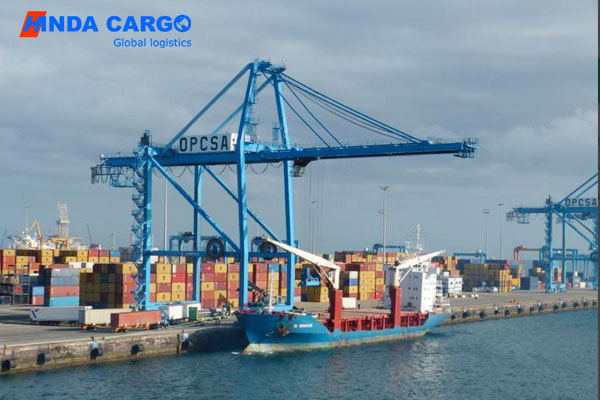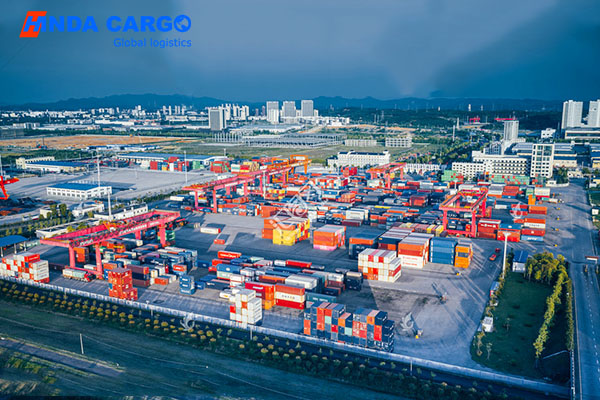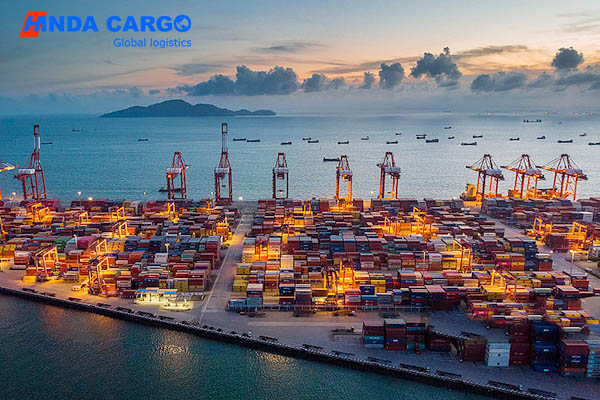What are the advantages and disadvantages of freight forwarding?
As an important link in the logistics chain, freight forwarding plays an indispensable role. Freight forwarding provides customers with professional logistics solutions by integrating and optimizing various transportation resources.
However, the operating mode of freight forwarding also has some limitations and challenges. This article will explore the advantages and disadvantages of freight forwarding in depth to help readers fully understand the characteristics and potential problems of this industry.

Definition and role of freight forwarding
A freight forwarder is an intermediary agency that arranges and manages the transportation of goods for customers. They do not directly undertake the transportation of goods, but cooperate with multiple carriers (such as shipping companies, airlines, trucking companies, etc.) to provide customers with the best transportation solutions. The responsibilities of freight forwarders include transportation consulting, solution design, booking transportation services, handling customs clearance procedures, logistics management, etc.

What are the advantages of freight forwarding?
1. Professional knowledge and experience
Freight forwarders have rich industry knowledge and experience and can provide customers with professional transportation consulting and solutions. They are familiar with the characteristics, costs and operating procedures of various modes of transportation, and can design the most suitable transportation plan according to customer needs and the characteristics of goods. In addition, freight forwarders also understand the regulations and policies of international trade and can help customers successfully complete customs declaration and clearance procedures to avoid delays and fines caused by unfamiliar regulations.
2. Save time and cost
Through freight forwarders, customers can save a lot of time and energy, and do not have to coordinate and manage various transportation links by themselves. Freight forwarders have a wide network of carriers and can obtain more favorable freight rates and space guarantees to help customers reduce transportation costs. In addition, freight forwarders can improve transportation efficiency and shorten the transportation time of goods by optimizing transportation routes and methods.
3. Flexibility and adaptability
Freight forwarders can flexibly adjust transportation plans and arrangements according to customer needs and market changes. They can integrate different modes of transportation (such as sea, air, land, etc.) and provide multimodal transport services to meet the transportation needs of different goods. In the face of emergencies (such as transportation delays, natural disasters, etc.), freight forwarders can respond quickly and adjust transportation plans in time to ensure that the goods arrive at their destination smoothly.
4. Full tracking and information feedback
Freight forwarders provide full tracking and information feedback services, and customers can understand the transportation status and location of goods at any time. Once a problem occurs, the freight forwarder will promptly notify the customer and take appropriate measures to solve it. This transparent communication and timely information feedback will help customers grasp the dynamics of the goods and make corresponding arrangements and adjustments.
5. Comprehensive logistics services
Many freight forwarders not only provide freight transportation services, but also provide comprehensive logistics services such as warehousing, packaging, distribution, and delivery. Customers can achieve one-stop logistics management through freight forwarders, simplify operating procedures, reduce management costs, and improve logistics efficiency.

What are the disadvantages of freight forwarding?
1. Additional costs
Although freight forwarders can reduce overall costs by optimizing transportation solutions, their services themselves are also costly. Customers need to pay the freight forwarder's service fees, which may increase the total cost of transportation. For some small and medium-sized enterprises or low-value goods, the freight forwarder's service fees may be high, affecting their profit margins.
2. Reduced control
Using a freight forwarder means that the customer will hand over part of the transportation management and control to a third party. Although freight forwarders provide professional services, customers may feel a lack of direct control over the transportation process in some cases. If the freight forwarder makes omissions or mistakes during the service process, it may affect the on-time arrival and transportation quality of the goods.
3. Unclear risk bearing
In the operation mode of freight forwarding, the risk bearing issue may be more complicated. Freight forwarders themselves do not directly bear the responsibility for transportation, but they need to coordinate the services of multiple carriers. Once problems such as cargo damage, loss or delay occur, the division and pursuit of responsibilities may be more difficult. When choosing a freight forwarder, customers need to carefully review its contract terms and clarify the risk bearing and compensation mechanism.
4. Information asymmetry
In some cases, freight forwarders may affect customer decisions due to information asymmetry. For example, freight forwarders may give priority to carriers with which they have a good cooperative relationship, rather than choosing the best transportation plan based on the best interests of customers. This information asymmetry may result in customers not being able to obtain the best transportation services and costs.
5. Dependence risk
Customers who rely on the services provided by a freight forwarder for a long time may face certain risks. If the freight forwarder stops providing services due to business adjustments, market changes or other reasons, customers need to find new logistics partners again, which may cause certain business interruptions and transition costs. Therefore, when choosing a freight forwarder, customers should maintain a certain degree of diversity and flexibility to avoid over-reliance on a single service provider.

Actual case analysis
1. Freight forwarding for large multinational companies
Many large multinational companies, such as Apple and Walmart, choose freight forwarders to manage their global supply chains. These companies have achieved efficient logistics management and cost control through the professional services of freight forwarders. For example, Apple uses freight forwarders to optimize its supply chain from manufacturing to distribution around the world, ensuring that products can reach consumers quickly and on time.
2. Freight forwarding selection for small and medium-sized enterprises
For small and medium-sized enterprises, choosing the right freight forwarder is particularly important. A small and medium-sized toy company in the United States successfully exported its products to the European and Asian markets by cooperating with a freight forwarder. The freight forwarder not only helped it design the best transportation plan, but also provided warehousing and distribution services, greatly simplifying the company's logistics management. However, the company also faced the problem of high freight forwarding service fees, but overall, through the professional services of freight forwarders, its expansion into the international market has achieved remarkable results.
Conclusion
By gaining a deeper understanding of the advantages and disadvantages of freight forwarding, customers can better weigh the pros and cons and choose the logistics service solution that best suits their needs. In the future, as technology develops and the market changes, freight forwarding services will continue to innovate and evolve, contributing to the development of the global trade and logistics industry.




